7 Easy Ways Culinary Herbs Can Boost Your Health
Practical steps to grow good health with herbs and simple goals to use them daily
I believe everyday kitchen herbs are high value plants. We have the potential to enjoy their vibrant flavours and benefit from diverse medicinal properties IF we use them! Do you have a pot of herbs or a few in the garden? If so, I hope their health benefits will inspire you to use them more often.
"Herbs are the friends of physicians and the praise of cooks." - Emperor Charlemagne (AD 742-814)
Quick Summary:
Challenge yourself to choose one new way to use a herb this week.
Check the list of ideas for inspiration to set your goal.
All herbs aid digestion, are highly nutritious and provide medicinal benefits.
7 easy ways to use herbs to boost your health include a simple garnish, teas, microgreens and oral health.
Spring into action – 4 steps to learn more about herbs.
Herb Goal Challenge
I have come to revere herbs highly for their health benefits so I’m motivated to use them daily. It’s empowering to take positive action to support your health and wellbeing with Nature’s gift – herbs. These suggestions have helped me use herbs regularly in my daily routine.
Step 1: Challenge yourself with a realistic goal you know you can achieve. To kick start your thinking, I’m sharing a list of easy ways I incorporate culinary herbs into my kitchen.
Step 2: Choose ONE suggestion to work on this week. Select an idea from my list or one of your own. It may be hard to step out of your comfort zone to use herbs at all, or in a new way. I’m going to share some powerful reasons to do so. Herbs are preventative medicine!
Step 3: Write it down. Put your goal on the fridge, in your diary or a reminder alarm on your phone. Once you reach your goal, work on another.
If improving your overall health and wellbeing is important to you, why not start now? “If nothing changes, nothing changes!” Empowering yourself to make a positive decision to help heal and nourish yourself can start today. Knowledge itself isn’t life changing, but applying can be!
So let’s get into my list.
7 Easy Ways to Use Herbs to Boost Your Health
1. Add a Garnish: Probably the simplest way to use any culinary herb is to chop it up just before use and add it fresh to flavour your meal. Fresh herbs stimulate the production of digestive enzymes and bile to help break down food into absorbable nutrients. For example, parsley1 contains compounds that help enhance enzyme activity and support digestion. Eating parsley (Petroselinum crispum) daily can help strengthen the body’s antioxidant systems, protect against DNA damage and cancer.2 Try sprinkling some parsley over vegetables. Garnish potatoes with chopped chives or spring onions or simply add mint to fruit salad. 🌿
2. Make Herb Tea: Add 3-4 chopped or torn fresh leaves of mint, spearmint or peppermint to a cup. Or use another culinary herb you grow or check the pantry for dried herbs. You may consider Lemon Balm (Melissa officinalis), known for its calming, anti-stress, antidepressant properties and its ability to significantly help reduce anxiety.3 🍵
Pour a cup of boiled water over the herbs and cover. Steep for at least three minutes to infuse the flavour and release the beneficial compounds. For a refreshing, cool drink in hot weather, chill it in the fridge or add ice cubes to cool it down fast.
3. Add to a Drink: Making a smoothie, having juice or just a glass of water? Finely chop a sprig of mint to release the essential oils and flavour for a refreshing boost. Mint (Mentha sp.) is rich in antioxidants that help build the immune system. One study found “Many of the medicinal effects of mint are closely associated with the high content of phenolic compounds; the phenolics from mint tea and mint extracts have been shown to exhibit antimicrobial and antiviral activities.”4 Ideal for sore throats! 🍃
“As for the garden mint, the very smell of it alone recovers and refreshes our spirits as the taste stirs up the appetite.” – Pliny the Elder
4. Enhance Flavour and Health Benefits: Some dishes just don’t taste the same without specific herbs – fresh or dried. Like bolognese with basil, curries with coriander and stir-fries spiced up with chilli. Herbs complement, intensify and heighten the taste of other ingredients.
Chilli (Capsicum annuum) for example, contains capsaicin. This active compound improves blood circulation, can increase metabolic rate and promote fat burning.5, 6 Chillis are high in Vitamin C and antioxidants that help strengthen the immune system. All good reasons to turn up the heat with this fiery little herb. But there’s more! 🌶
According to the analysis of diet and mortality data from four large international studies7, eating chillis may reduce the relative risk of cardiovascular disease mortality by 26%. Impressively, chilli consumption was associated with a 25% reduction in death from ANY cause and 23% fewer cancer deaths, compared to people who never or only rarely ate chillis. That’s hot news! 🔥
Learn more ways to use 72 culinary and medicinal herbs in this reference chart.
5. Mouth Freshener to Improve Oral Health: Chew a couple of fresh mint leaves to cleanse your mouth, improve oral hygiene and freshen your breath. Mint contains peppermint oil with two compounds, menthol and rosmarinic acid that can inhibit the growth of some types of bacteria.8 Mint, with its antibacterial properties, has shown potential in reducing the abundance of harmful bacteria like Streptococcus and Actinomyces that are associated with halitosis (bad breath) and periodontal diseases.
6. Add Microgreens to a Meal: Herb microgreens are tender baby seedlings harvested 7-21 days after germination. They are nutritional powerhouses, high in vitamins, minerals, antioxidants and bioactive compounds. Buy a punnet or try sowing some microgreens* herb seeds. Snip them after they sprout for fresh digestive enzymes and flavour. A few to try include basil, coriander, parsley, rocket or dill. A comprehensive review on microgreens9 reveals more details on the nutritional components in each variety and their unique health benefits. 🌱
For example, Sweet Basil (Ocimum basilicum) contains vitamins K, C, E and A, and minerals like iron, potassium, magnesium and sodium. Basil has antioxidant, anticancer, antimicrobial, antifungal, and anti-inflammatory compounds.9 Pretty impressive considering you can grow them in a tiny space on a sunny windowsill indoors! 🌱☀
* Choose only seeds labelled as “organic” or “microgreens or sprouting” to avoid chemicals.
7. Make Rosemary Skewers: When barbecuing or grilling vegetables or meat, thread cubes onto a stem of rosemary (Rosmarinus officinalis) to infuse the vibrant aromatic oils. Or use the skewers to bast with a marinade for a delicate flavour. I often lay rosemary stems or sprinkle sprigs on oven trays when roasting vegetables or add them to casseroles, savoury breads, pizza and stews. Rosemary's active compounds, including carnosic acid, may support brain health and protect against neurodegenerative diseases. Thankfully, cooking does not significantly diminish these benefits.10 🌿
I hope these easy ways to use herbs daily for health and flavour have provided food for thought.
Next Action Steps
1. Check out my book Guide to Using Kitchen Herbs for Health – Quick, Easy Ways to Grow, Eat & Use Herbs Daily to learn more about using herbs for health.
2. Commit to using a favourite herb in your meals this week – even better, daily!
3. Read my Herb articles to start growing your own and using them every day.
4. Check out the References section below if you like foraging through science-backed research.
Have any of these ideas germinated to motivate you to try herbs in a new way? Let me know in the comments.
References
4 Polyphenol composition and antioxidant potential of mint leaves
5 Capsaicinoids and capsinoids. A potential role for weight management? A systematic review of the evidence; Capsaicinoids: a spicy solution to the management of obesity?
6 A Scientific Review Regarding Health Benefits of Chillies
To your good health, Anne
🌿 If this helped sow a seed or let a new idea take root, a coffee helps me keep cultivating.
Disclaimer: This information is educational material only and is not intended to take the place of advice from your own health care provider or doctor(s) or to be a means of diagnosing or treating an illness. Seek medical care from a qualified professional if you are having a health condition or symptoms. The author does not accept any responsibility for your health, how you choose to use the information contained in the material, or your medical outcomes resulting from applying this information.
AI Notice: This content is not authorised for AI training, scraping, or summarisation. © Anne Gibson, All rights reserved 2025.


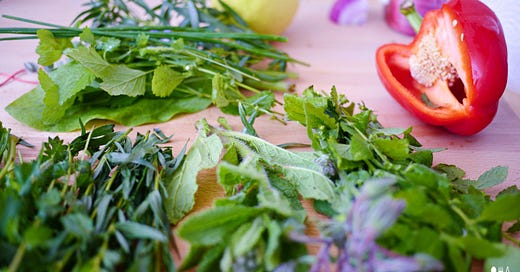




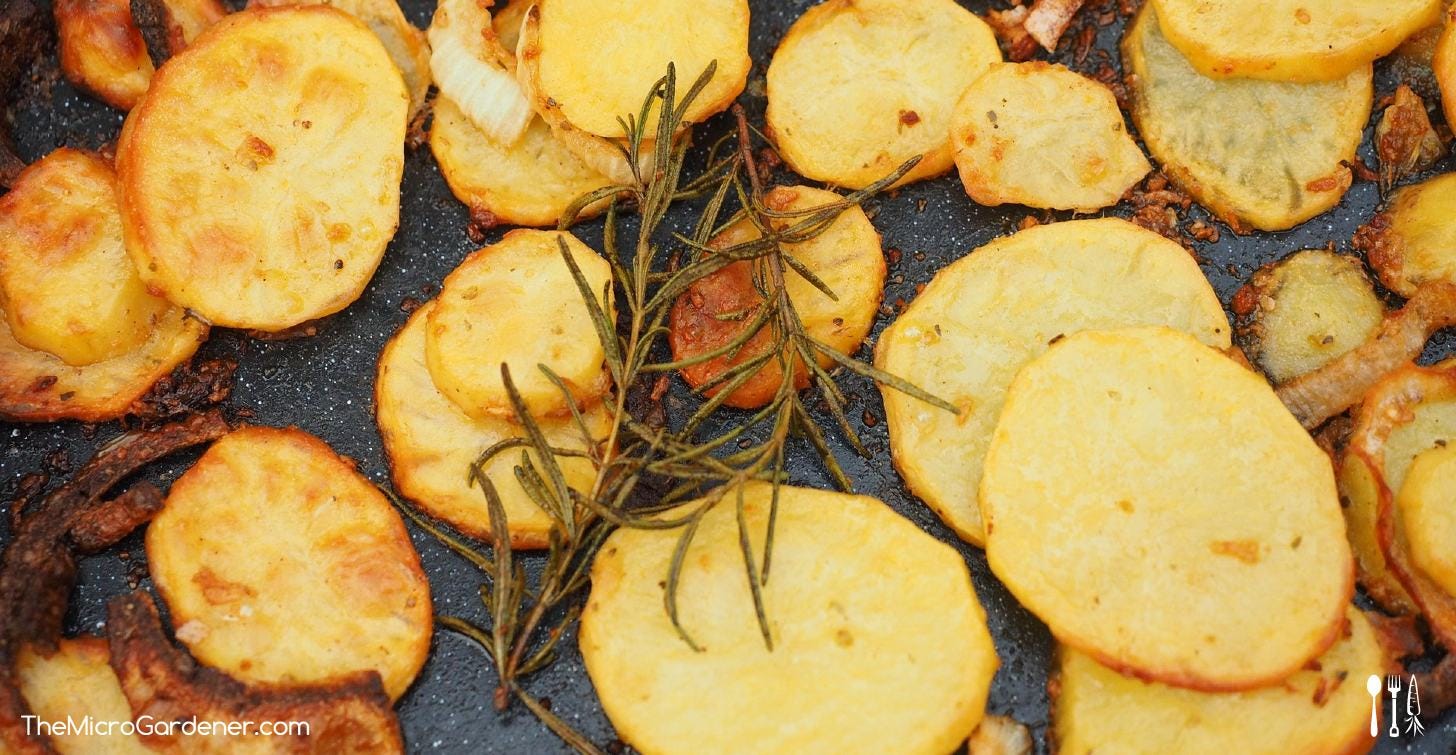
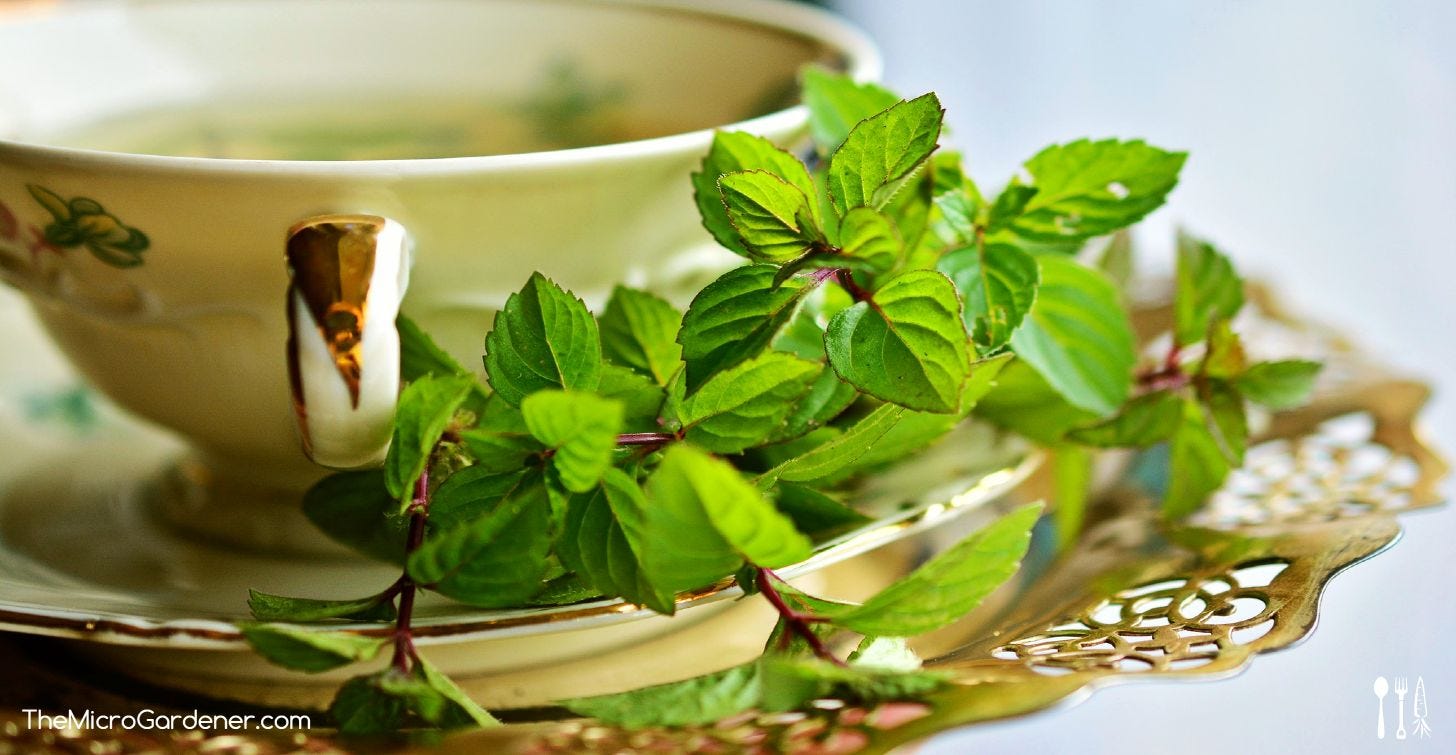
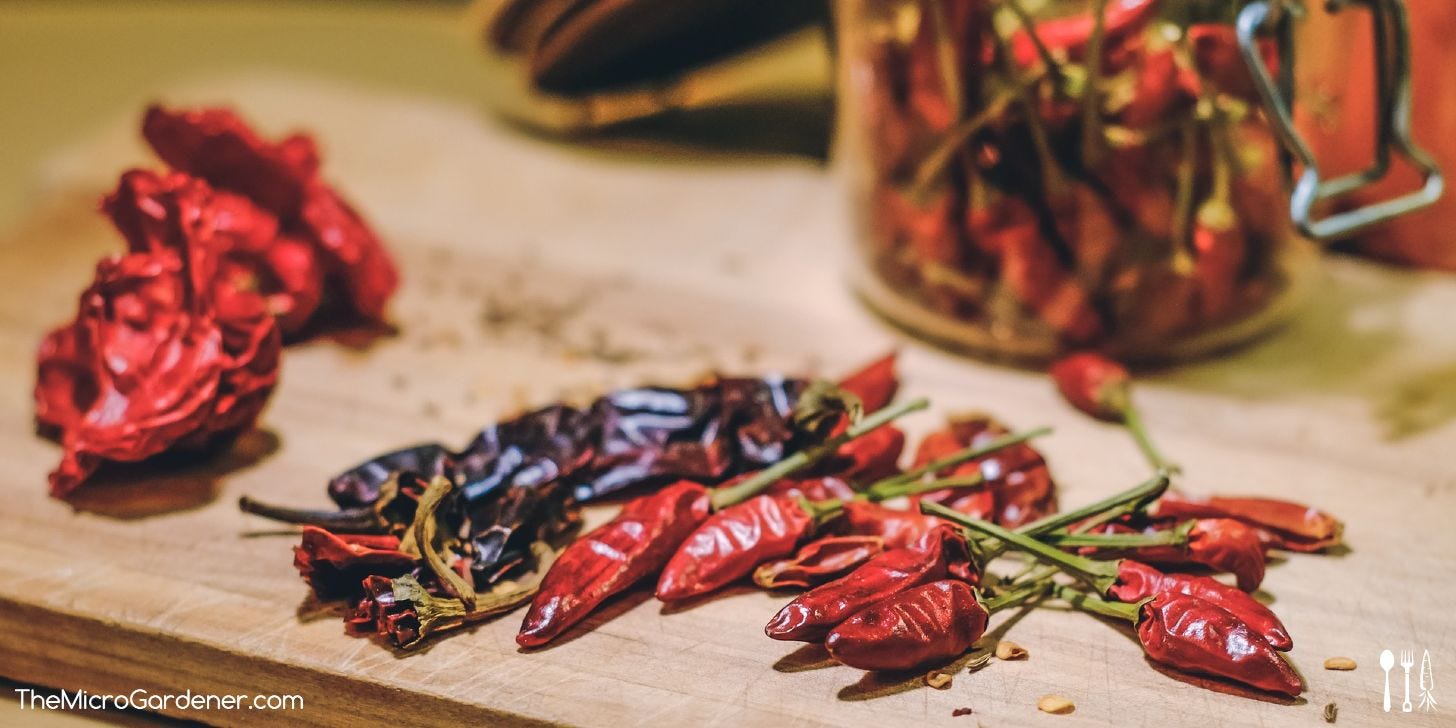
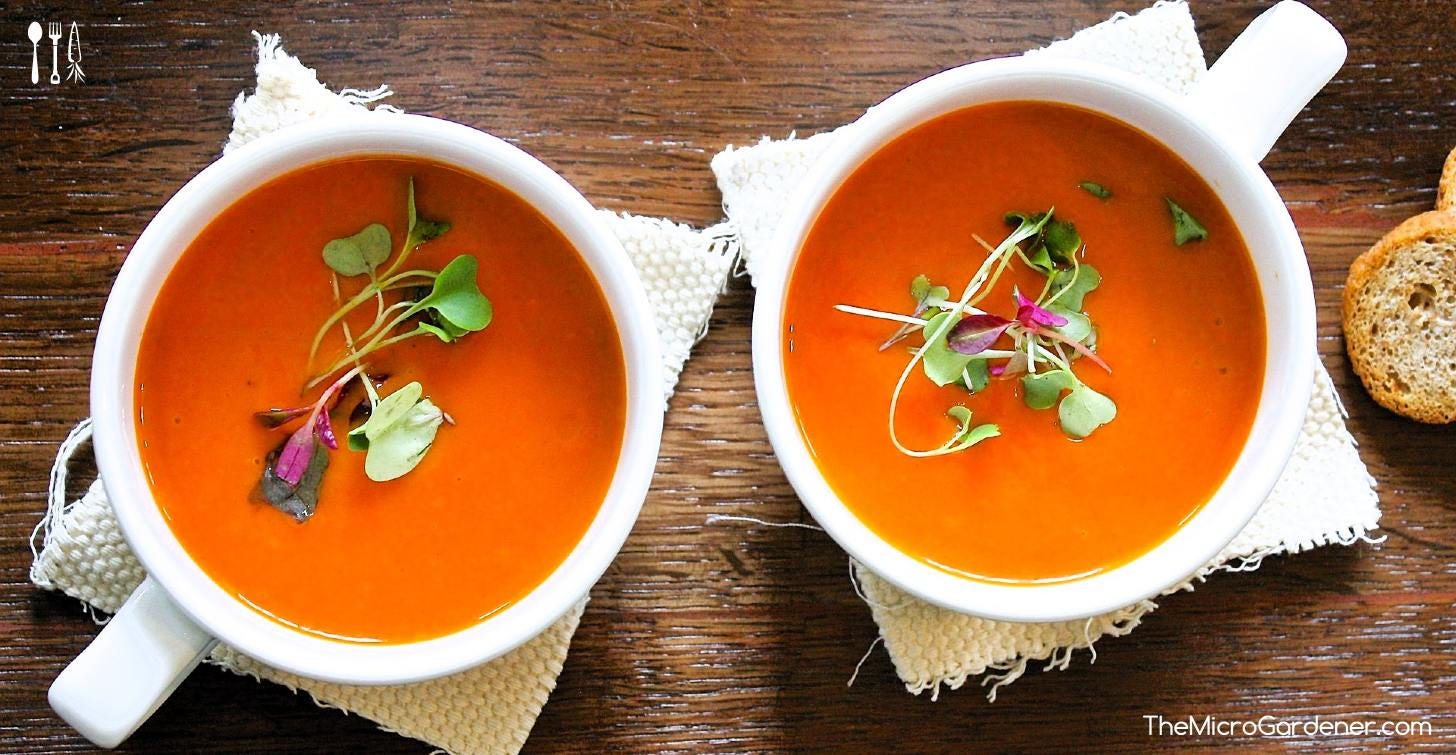


Thanks, those are useful ideas to go from knowing herbs are good for you to actually using them.
Thank you for this article !